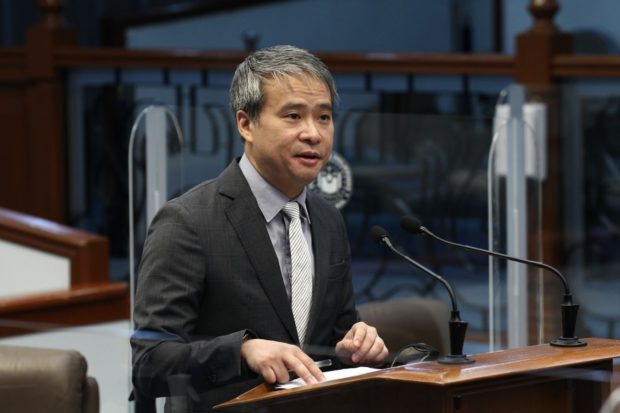
Senate Committee on Higher, Technical and Vocational Education chairman Sen. Joel Villanueva. Senate PRIB file photo / Voltaire F. Domingo
MANILA, Philippines — Reelectionist Senator Joel Villanueva on Monday said that the budget for the “Doktor Para sa Bayan Act” scholars should be further increased to address the growing shortage of doctors in the country.
“At the minimum of 1 per 1,000, the country has a shortage of 80,000 doctors,” Villanueva said in a statement.
“By 2030, our population will increase to 125 million, and 15 million more Filipinos would ideally need 45,000 doctors,” the senator said.
Because of this, Villanueva, who is also the current chair of the Senate committee on higher, technical, and vocational education pushed for another budget increase in the medical scholarships under the “Doktor Para sa Bayan Act.”
“Next year, the budget should be increased because erasing the national backlog of doctors should not be delayed,” Villanueva said.
This is on top of the increase for the said act in this year’s national budget, which Villanueva also sponsored in the 2022 General Appropriations Act.
He then explained that the increase in scholars will go hand-in-hand with the increase in the number of state universities offering MD (Medical Doctor) courses, noting that more state universities and colleges offering medical courses are expected to rise soon.
“With the Doktor Para sa Bayan Act and more SUCs offering medical courses, the dream of becoming a doctor and the dream of medical services for the masses are both close to reality for Filipinos,” Villanueva said.
The “Doktor Para sa Bayan Act” or Republic Act No. 11509 aims to produce more physicians by offering qualified candidates free tuition, book, living and other allowances.
The law requires the scholar to serve in public health facilities for at least one year for every scholarship year enjoyed.
RELATED STORIES:
PH short of 92,000 physicians in view of pandemic — DOH exec
2022 COVID surge, med shortage see mirror image from 2020